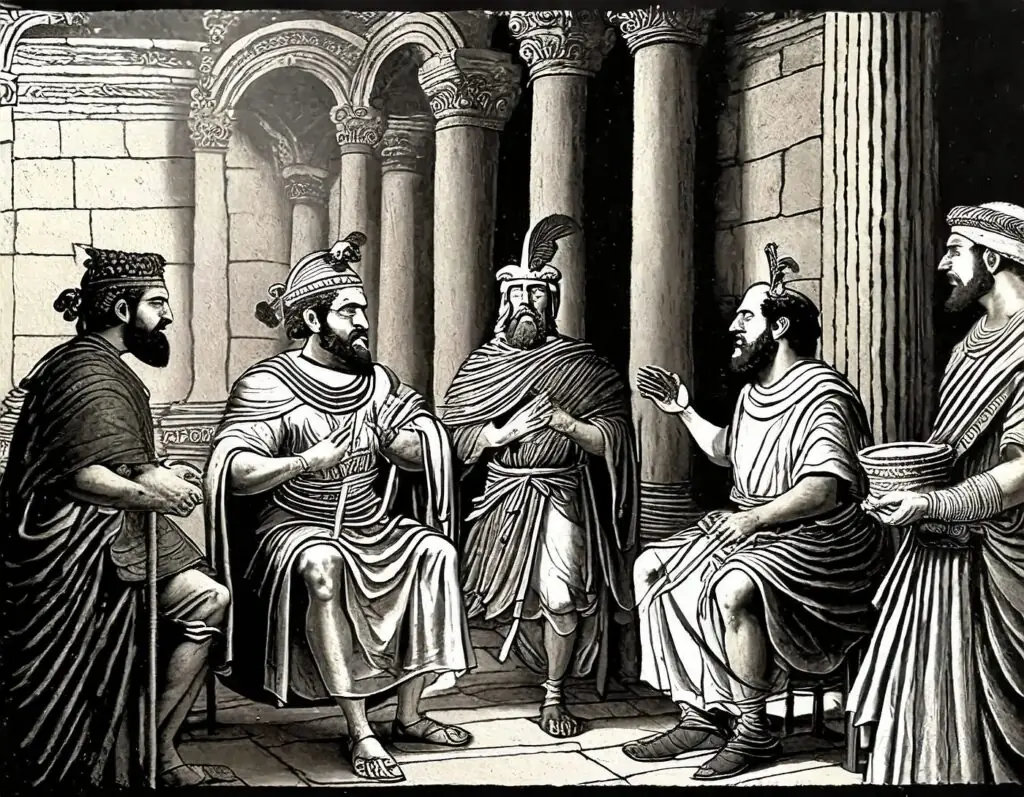In the history of ancient civilizations, “Patrician” is a word that stands out. It represents the top tier of society, filled with wealthy, powerful, and influential individuals. These ancient aristocrats were rich and powerful, yet, they also played important roles in shaping the societies they lived in. Ever wondered what it would be like to be at the top of the social pyramid in ancient times? Read on to discover how the Patricians lived and ruled, and how their legacy still echoes in modern times.

✅ AI Essay Writer ✅ AI Detector ✅ Plagchecker ✅ Paraphraser
✅ Summarizer ✅ Citation Generator
Origins and Historical Context
Imagine a time long ago when early civilizations were just starting to bloom. In this world, a special group of people known as Patricians began to stand out. These were an elite class, distinct from the common folk or “plebeians” as they were called in Rome. They formed as societies grew more complex, with more detailed forms of government and social structures. As Rome grew into a powerful empire, it needed a clear order of who was in charge. Enter the Patricians, with their wealth and social influence, who quickly climbed to the top of this social ladder.
A key chapter in their story is the establishment of the Roman Republic, which was a revolution in the governing of society. During this era, the Patricians took on significant roles, especially in the Senate, where they had a major say in the decisions that would shape Rome’s future.
Patricians were not unique to Rome though. Their counterparts existed in various ancient civilizations, albeit under different titles and roles. In ancient Rome, the Patricians held a special place at the top of society, clearly set apart from the common people as the noble elite. In contrast, other cultures, such as Athens, had their own elite social classes, often based on birthright or wealth.

Patricians in Roman Society
The Patricians of Rome stand out as one of the most iconic examples of this elite social class. As we established, in the early days of Rome, Patricians held immense power and influence, primarily through their dominance in the Senate. They were instrumental in shaping the Roman Republic and played vital roles in governance and politics.
The Conflict of Orders, a historical period in early Rome, marked a significant struggle for power and representation between the Patricians and the commoners, known as the Plebeians. This clash arose due to the stark disparities in wealth, power, and influence. The Patricians, as the nobility, were determined to maintain their privileged status, while the Plebeians sought greater rights and political equality. The conflict eventually led to key legislative changes, such as the Lex Canuleia, which allowed intermarriage between Patricians and Plebeians. Despite these changes, the Patricians continued to occupy influential positions, and their status as the nobility persisted.
Besides their role in politics, the Patricians were also important in the military. They were the main force behind Rome’s early cavalry, using their wealth to fund and equip the soldiers. This not only showed their importance in warfare but also helped them keep their high status in Roman society.
In the End…
Therefore, as the upper echelon in Rome, distinct from the common Plebeians, the Patricians wielded substantial wealth, power, and influence. Yet, they have also firmly established their significant role with the founding of the Roman Republic, where they influenced major political decisions in the Senate. Throughout the history of this state, they managed to maintain their elite status through important albeit gradual reforms that allowed intermarriage between classes. As such, looking at the legacy of the Patricians, we can say that it offers us timeless insights into leadership, privilege, and the ongoing struggle for rights and equality, echoing through history and influencing our understanding of modern societal structures as well.
FAQ
Follow us on Reddit for more insights and updates.





Comments (0)
Welcome to A*Help comments!
We’re all about debate and discussion at A*Help.
We value the diverse opinions of users, so you may find points of view that you don’t agree with. And that’s cool. However, there are certain things we’re not OK with: attempts to manipulate our data in any way, for example, or the posting of discriminative, offensive, hateful, or disparaging material.